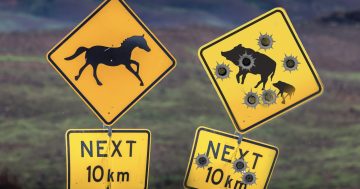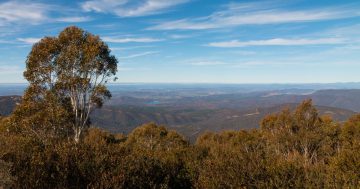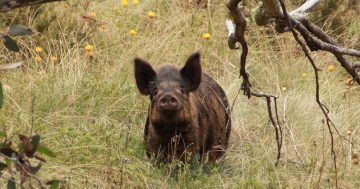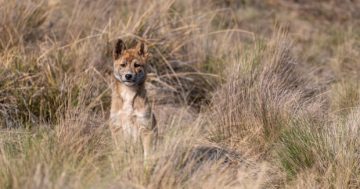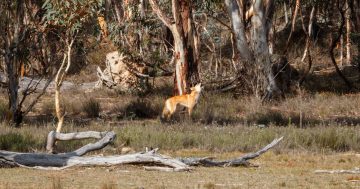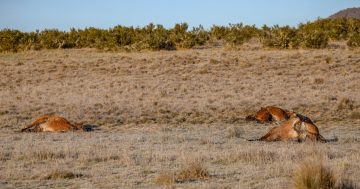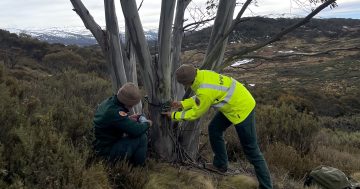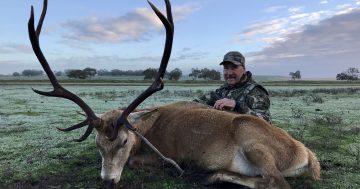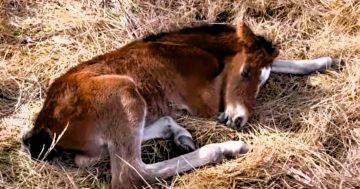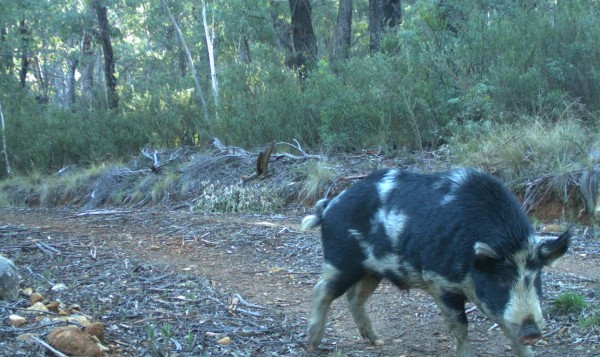
Three men who were caught in late June pig-hunting with dogs in a four-wheel-drive and escorted from Namadgi National Park by rangers have been fined more than $5400.
A joint investigation byy ACT Policing’s Rural Patrol and the ACT Parks & Conservation Service into the actions of the three men has led to the identification of a fourth man, who is now being investigated for illegal hunting in a reserve.
The second investigation relates to four incidences of illegal hunting in a reserve between February and July this year.
Parks & Conservation rangers run feral pig control program using fenced pig traps and surveillance cameras, cameras that also capture footage of hunting activity in reserves.
While four-wheel-drive vehicles and hunting dogs cause disturbances to native flora and fauna in the park, a further problem is that the hunters will go to great lengths to ensure a steady supply of prey for their sport.
According to an ABC report in 2014, illegal hunters have been known to capture breeding sows and remove their ears before re-releasing them, thus making it harder for hunting dogs to catch them on future raids.
Feral pigs are the descendants of domestic pigs that arrived in Australia with the First Fleet. They are hairier than domestic pigs, with straighter tails. An adult female feral pig typically weighs between 50kg and 60kg, while a male will be between 80kg and 100kg with extremely large beasts reaching up to 260kg.
Feral pigs are considered a pest because of their selective feeding, trampling and rooting for tubers and critters underground, as well as predation on, competition with, or disturbance of a range of native animal species. The pigs prey on earthworms, insects, amphibians, reptiles, ground-nesting birds, small mammals, freshwater crayfish, frogs, turtles and their eggs.
By wallowing and rooting around waterways, they destroy vegetation which provides food and nesting sites for native wildlife and helps prevent soil erosion. Water quality is also affected and their diggings may spread undesirable plant and animal species, and plant diseases.
The ACT Parks and Conservation Service encourages residents to report dangerous and illegal activity in the ACT’s parks and reserves.
The service’s regional manager, Brett McNamara, said the recent fines sent a clear message to the community that pig hunting was unacceptable.
“Illegal hunting poses a risk to other park users, wildlife and native habitat,” he said.
“As a result of our partnership with the Rural Patrol, ACT Policing has issued a number of infringement notices in recent years to offenders detected in and around Canberra’s parks and reserves. We will continue to send a clear message that such behaviour will not be tolerated.
“I’d also like to encourage the general public to report illegal hunting and other illegal activities, such as dangerous driving or vandalism, to help keep our parks and reserves safe for everyone and free from damage. Reporting this kind of behaviour does make a difference.”
Anybody with information relating to any illegal activities within nature reserves is encouraged to contact Crimestoppers on 1800 333 000.












